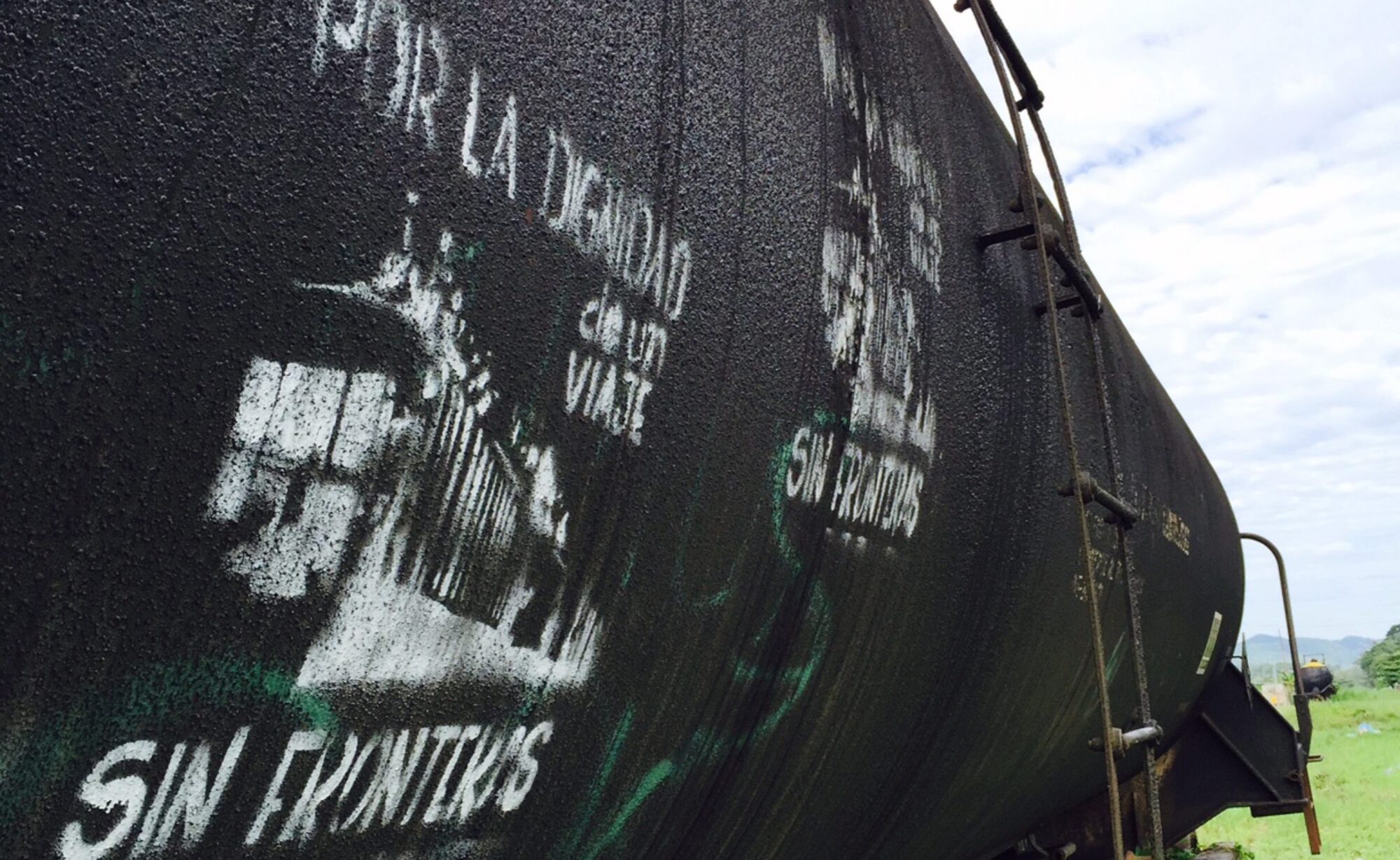How the border industry benefits from climate displacement and protects the polluters.
It was the summer and the sun was beating down. Josh Garcia, a supervisor for the Tohono O’odham Nation’s Youth Council, was driving two teenagers back to their homes on the San Xavier reservation near Tucson. It had been an exhilarating day. They had climbed and sung to a sacred mountain and gotten a glimpse of a mountain lion walking in the distance.
And now a Border Patrol agent was screaming at them. “Get back!” the agent yelled after forcing Garcia out of his truck. They were standing in the secondary inspection area at a Border Patrol checkpoint near the small town of Three Points, just outside the reservation, about 40 miles north of the U.S.-Mexico border.
Nearby stood a group of armed employees of G4S, a transnational company with headquarters in the UK. They wore gray uniforms and black boots. One of them tossed the apple he was eating to the ground, Garcia told me afterward*, as they advanced behind the green-uniformed Border Patrol agent. What sparked the border agent’s anger, and led the battalion of G4S agents to advance, was that Garcia had said, “We don’t consent to a search.”
Garcia had been through the checkpoints and often faced this type of harassment. But that day the menacing G4S employees were something new. Employees of a multinational corporation were stationed on the only road from the O’odham reservation to Tucson because the company had contracts with Customs and Border Protection, 25 of them signed from 2008 to 2019 and collectively worth $653.3 million. The company’s nondescript white van that was parked off to the side was in fact a moving jail cell in which they transported arrested migrants (and, for that matter, possibly Garcia). “We understand the bigger picture and challenges of keeping borders secure,” the company boasts on its website.
Read the rest here at The Border Chronicle.
